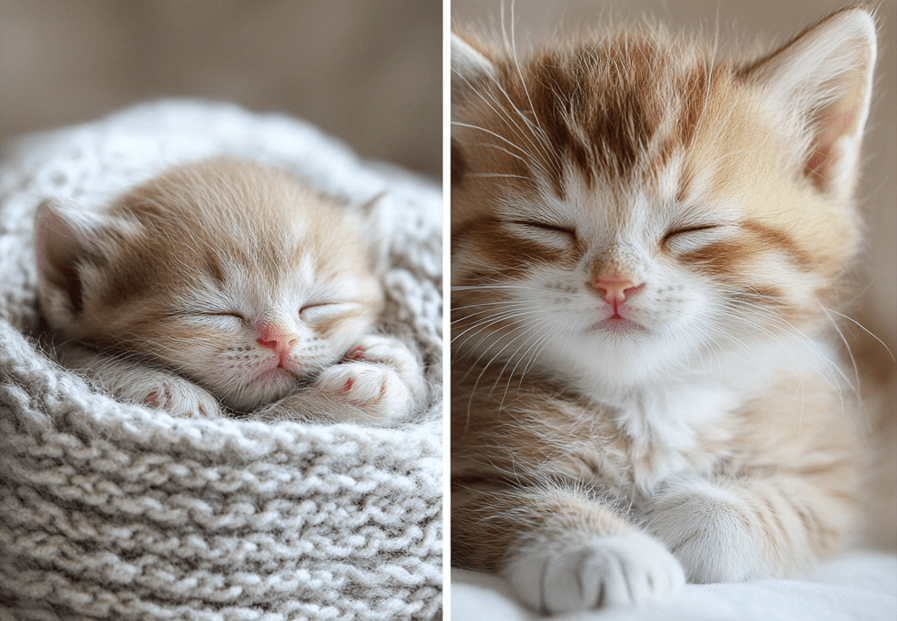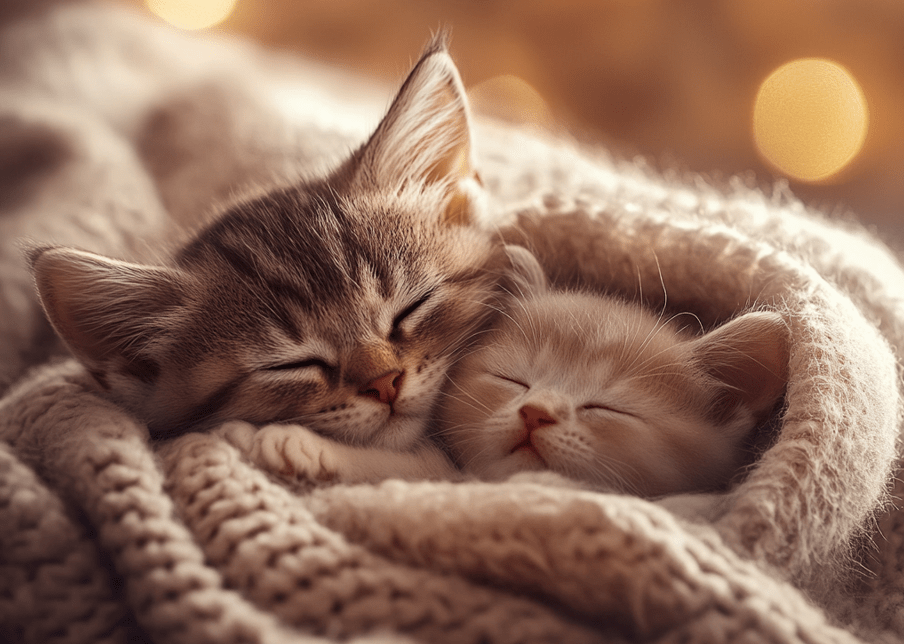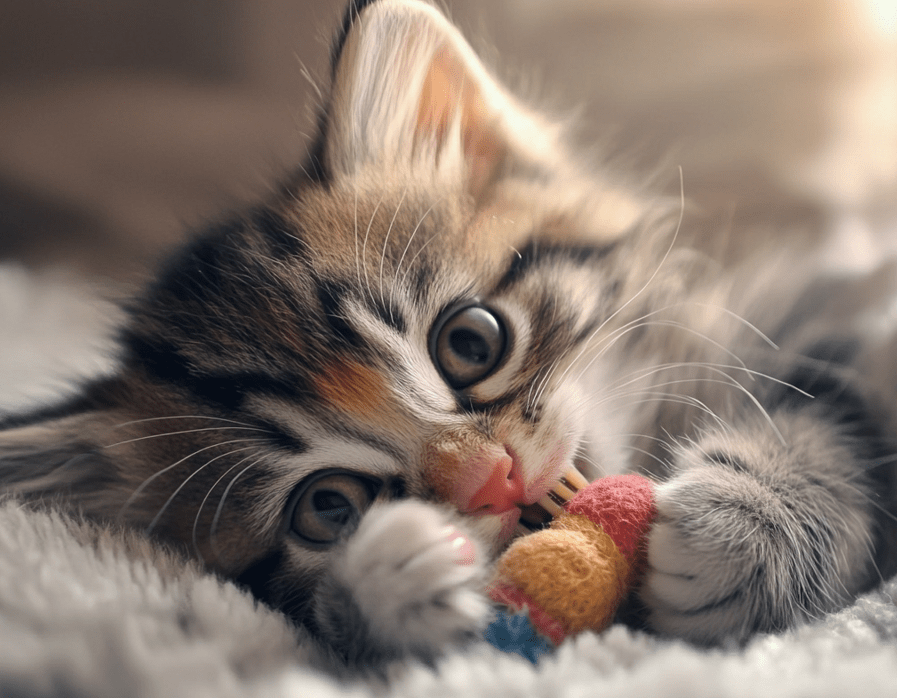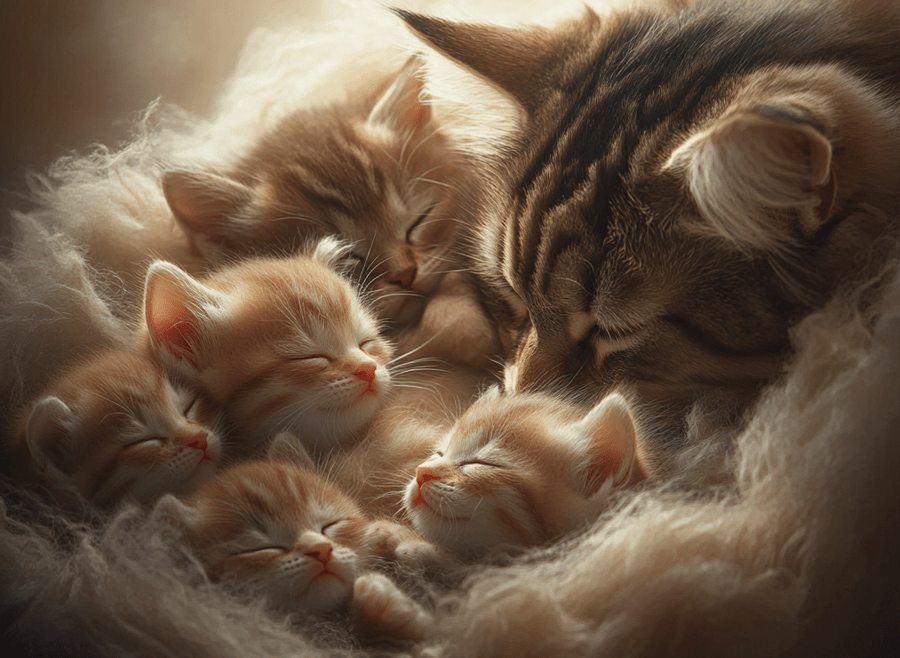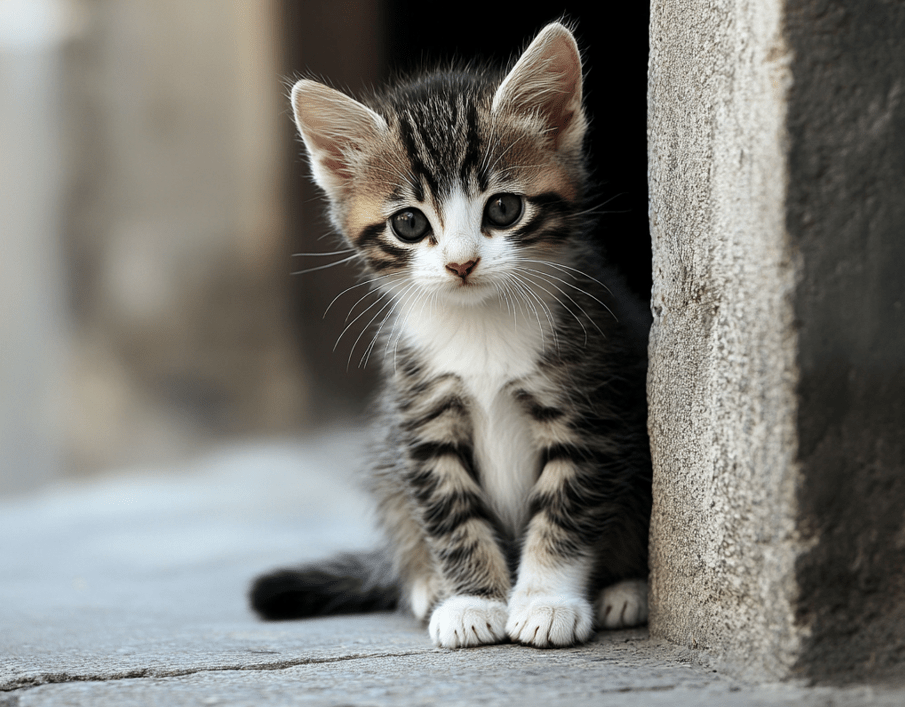
When you see a small kitten outdoors or it shows up on your doorstep, it is only natural to wish to assist. So how can you tell if the kitten was separated from its mother early or before it was time? This will often mean surrendering kittens, which should never leave their mother before 8 weeks minimum and closer to 10 weeks for health and wellness. At this point in their lives, they should have had time to:
1.Slowly be pulled away from mama and onto solid food
2.Grow complete eyesight and sound, which are important for them to explore their environment cautiously
3.To acquire basic skills like playing, grooming them and socializing with others
If you find a stray kitten you think appears healthy it may be best to leave him there to see if mother is around. Even if it is a feral mom, sometimes the mother may still be parenting her kitten. Most of the time, it is best to leave them as-is because that way we can ensure a healthy, well-balanced domestic kitten would grow up.
To watch the summary of this article, just watch this video-
1.Susceptibility to Illness

Up until they are about four weeks old, kittens depend on their mother as she provides most of their nutrients through her milk. The mother cat almost always starts to wean them around eight weeks of age, which means she is reducing their reliance on her milk. One note of caution though: while kittens need a supply of mother cat if they are separated from her too early, it may be much more difficult for them to grow properly.
Kittens that are orphaned or weaned early will need to be bottle fed a kitten specific formula. However, even though the mother is producing this, a very young kitten may still miss out on these natural antibodies which will help her grow and avoid illness.
2.Tendency toward Aggression
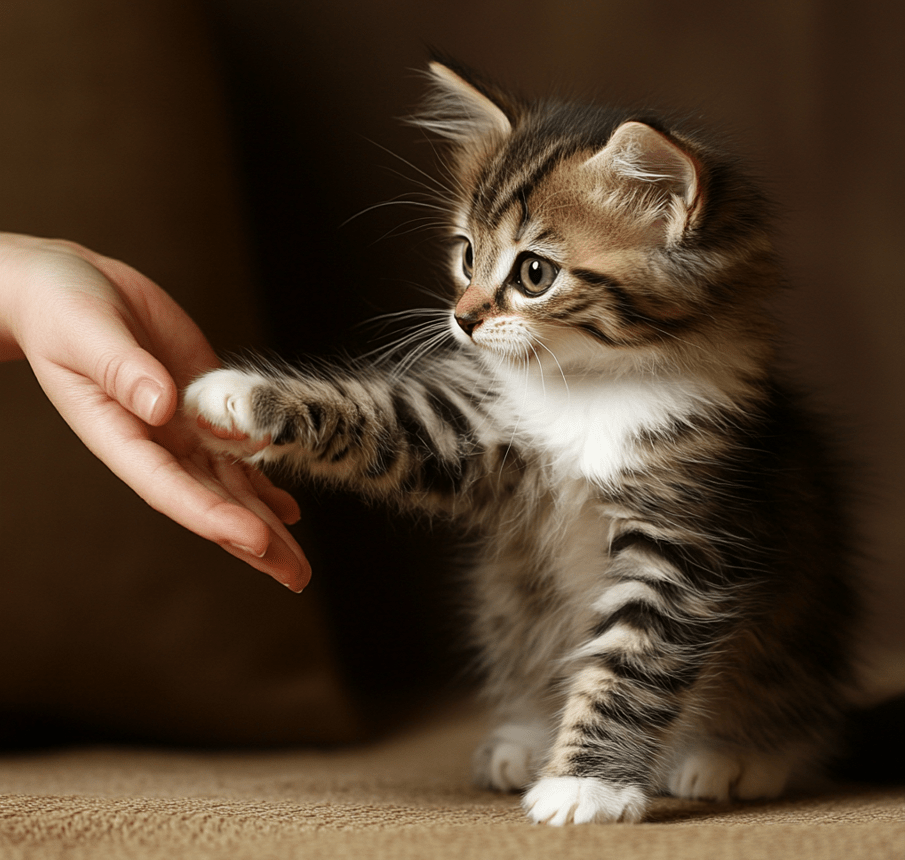
Besides receiving nutrition, kittens learn important behavioral skills from their mother and littermates. Kittens removed from their mother and siblings before they are about 8–9 weeks of age often never learn to play well in a socially acceptable manner.
Kittens that are removed from their Mum too soon may not be able to interact properly with others and this could result in shyness, fearfulness or a quick reaction when people come forward (biting/scratching). Kittens that are separated from their mothers too early have an increased likelihood of being aggressive towards the household pets and humans. If outside of their first few months, it helps to provide them with other kittens.
3.Fear

A mother cat teaches her kittens social skills and ensures they know how to interact with people and other animals. If you separate them too soon, they can often be anxious, timid and suspicious of others (including humans). Running away from unfamiliar people is a sign of fear in kittens. Before 10 to12 weeks old, kittens should be introduced to humans or face the danger of becoming afraid. Exposing them to various people, animals and environments from a young age can develop them into confident cats that trust people. A kitten that was taken away from its mother too early might be less affectionate when a new owner first adopts him, but given time and kindness, an affectionate owner will eventually win out.
4.Difficulty Adjusting

Mothers provide kittens with far more than nutrition; they also provide the building blocks of critical cat behavior lessons. If kittens are taken away from their mothers before they learn to groom themselves properly, they may need extra help with grooming and/or develop behaviors like “blanket nursing” or sucking on things. If you suspect a kitten was weaned too early, the best course of action is to make an appointment with your vet. A vet can give a realistic assessment of how old the kitten is and advice to make sure it gets the best care and start in life.
5.Litter Box Challenges
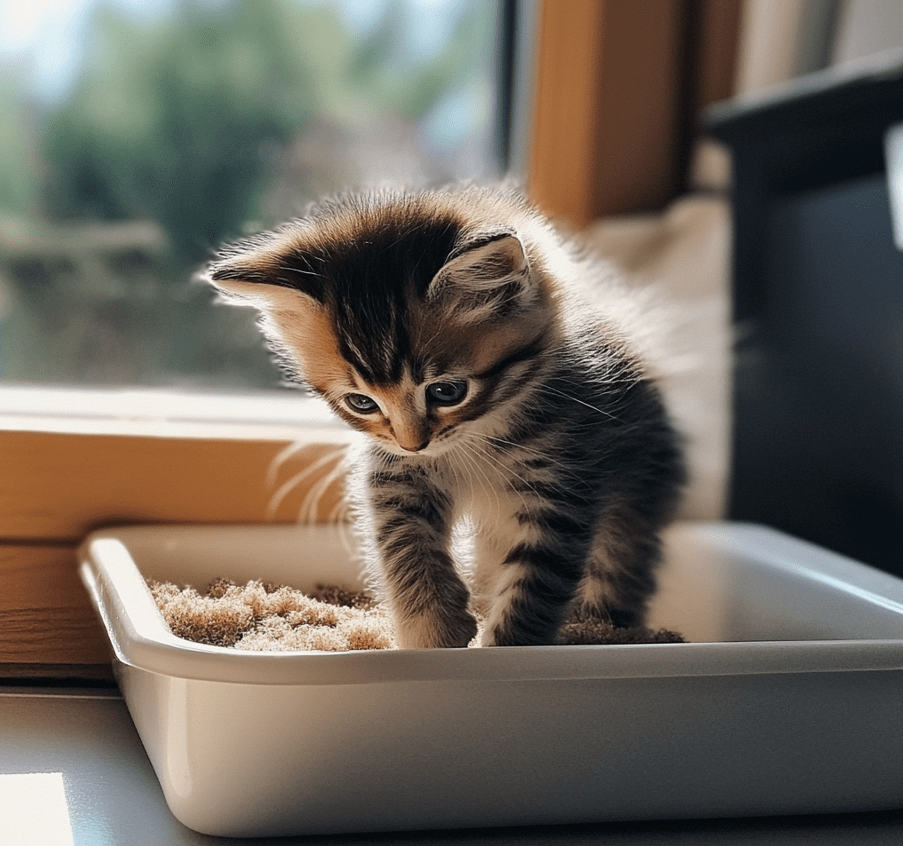
When kittens are taken from their mothers too early, they sometimes have trouble learning the appropriate habits with a litter box because they miss out on the natural training period that most kittens receive from their mother during the first few weeks of their life. Kittens usually use a litter box well at around eight weeks, but this behavior may not emerge if the kittens are separated from their mother earlier in life.
Kittens are unable to eliminate waste without assistance for the first three weeks of their lives. In the wild, a mother cat grooms her kittens to stimulate urination and defecation, as well as to show them how to use their litter box. Kittens learn where and how to go by seeing their mom.
A kitten removed from its mom too soon won’t get this guidance and knowledge. When kittens are about four weeks old, the owner should start by putting the kitten in a small litter pan, gently stimulating it and helping to scratch with its paw in the litter. It is important to use lots of positive reinforcement, and you do not want to reprimand them for any accidents. If a litter is separated too early they may require additional time & patience to gain good bathroom habits.
How Should You Care for a Kitten Separated Early from Its Mother?
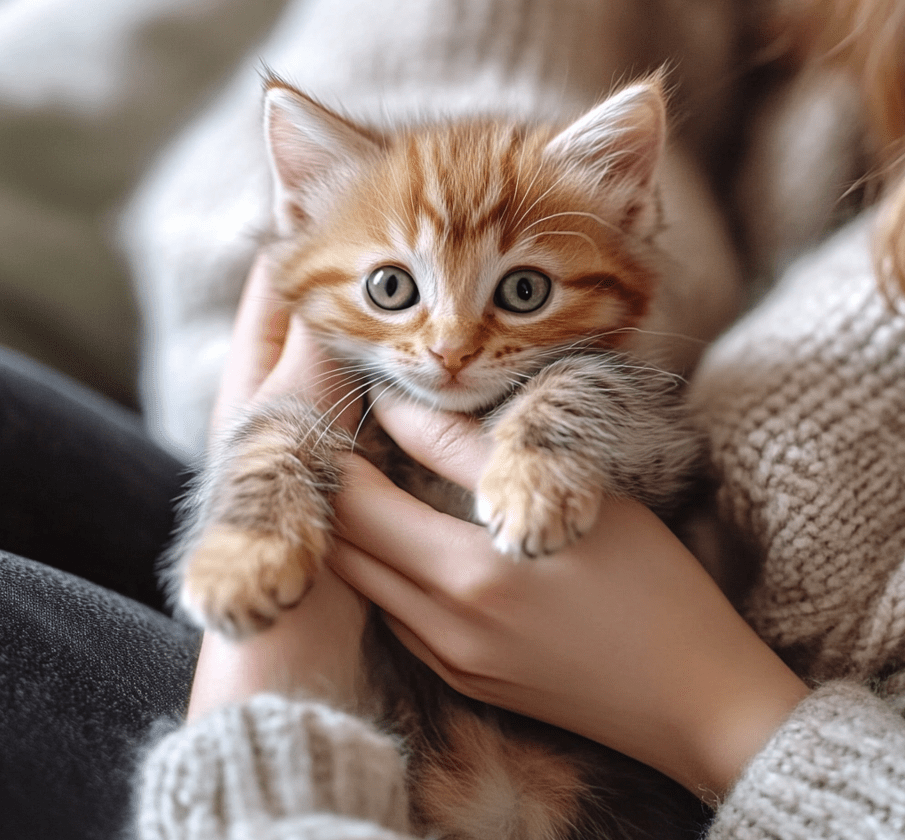
But if you have a young kitten who was orphaned or was taken away from its mother at an early age, don’t worry — there’s still so much you can do to help. Be calm and gentle to help your new pet settle in with you. If the kitten is too young a foster mother cat would ideally be around to meet the kitten’s physiological needs. If this is not feasible, be sure to have veterinary support available along with a warm, safe space and appropriate food options.
There are some key steps you can take if the kitten is very young
Frequent Handling: Spend time with your kitten, 15 to 40 minutes a day, engaging in gentle handling and snuggling so it gets a sense of what being around people is like.
Playful Stimulation: Consider engaging in playful activity that mimics the positive interactions it would have experienced with littermates.
Socialization and Boundaries: Expose your kitten to various environments and other creatures, integrating light boundaries to foster a well-adjusted demeanor.
If you are adopting an adult cat that has been weaned too young from their mother, be patient. Give it a little time to learn its character and get comfortable in its new home. Observed strange fearfulness or aggression, and can consult a veterinarian on how to proceed.
Though these social skills are usually learned during kittenhood, the vast majority of cats have the ability to adapt and learn when they get a little older.
If you are adopting an adult cat that was taken from its mother too early, be patient. Give it a little time to learn its character. Understand its specific personality and allow it to acclimate. If you see excessive fearful or aggressive behaviors, it is always best to reach out to your veterinarian for guidance.

